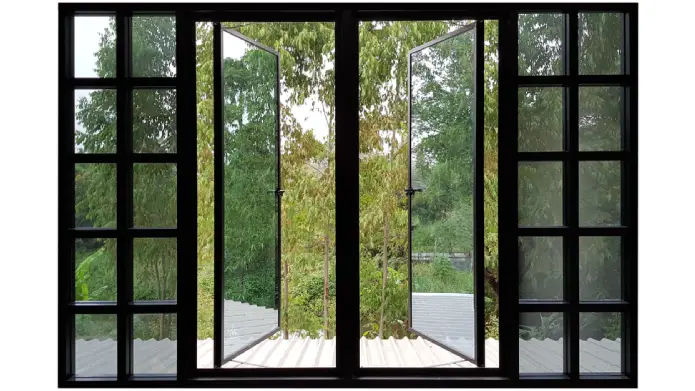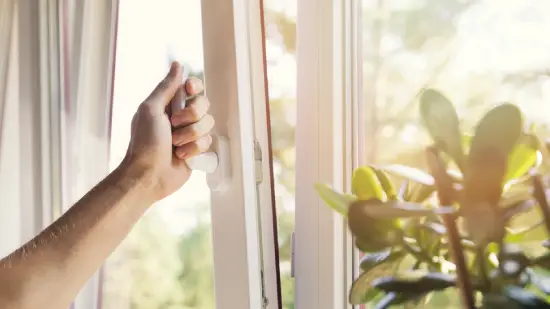Are you looking to replace the windows in your home? Outside of more traditional timber windows, your principal choice will be between aluminum and uPVC windows. While uPVC has been the more popular choice over the last few decades, aluminum is making headway in gaining market share.
This could be because it is a more sustainable product, and the cost of the raw materials used in PVC extrusion has increased considerably, closing the gap in the average price differential. This makes the choice between one or the other more difficult.
Traditionally, aluminum has always been considerably more expensive, but homeowners need to compare these products more fairly. Today, we will explore the pros and cons of both options and help steer you towards the better choice for your particular property, preferences, and budget.
Advantages of uPVC for Your Home Windows

The uPVC material is considered to offer the following advantages:
Energy Efficiency
uPVC is an excellent insulator that helps maintain the temperature inside your home. It can significantly reduce heat loss during the winter and heat gain during the summer, leading to energy savings and lower utility bills.
Non-Conductive
Unlike aluminum, uPVC is not a good conductor of heat or cold, so it does not transfer temperature as readily as aluminum. This property contributes to uPVC’s superior insulation capabilities.
Noise Insulation
The uPVC has superior sound insulation properties compared to aluminum. This is especially beneficial if your home is noisy, as uPVC windows can help reduce outside noise levels.
Low Maintenance
There is virtually no maintenance involved with uPVC windows. A simple soap and water wash is all that is required to clean them, and they do not require painting or staining. This can save you both time and money on maintenance over the years.
Customization
These windows come in a wide range of colors and styles, allowing for greater customization to match your home’s aesthetic. You can choose from various finishes and profiles to achieve the desired look.
Cost-Effective
UPVC windows are generally more cost-effective than aluminum windows regarding initial purchase and long-term maintenance costs. This makes them a budget-friendly choice for homeowners.
Advantages of Aluminum for Your Home Windows
The following benefits are associated with aluminum:
Slimmer Profiles
Aluminum is a strong and lightweight material, allowing for slimmer frame profiles. This means you can have larger glass areas, providing more natural light and better window views.
Robust Durability
Aluminum is highly durable and corrosion-resistant. It can withstand harsh weather conditions, including extreme heat, cold, and humidity, without warping, cracking, or deteriorating over time. This longevity makes aluminum windows an excellent long-term investment.
Also, aluminum is stronger than uPVC, allowing larger window sizes and configurations. This strength is particularly advantageous if you want expansive windows with minimal obstruction.
Fire Resistance
Aluminum is inherently fire-resistant, which can be an important safety feature for your home, especially in regions prone to wildfires.
Aesthetic Versatility
Aluminum windows are available in various colors and finishes. You can choose from various powder-coated colors to match your home’s aesthetics. This flexibility allows for more design choices than uPVC, which typically has limited color options.
Narrow Sightlines
Aluminum windows often have narrower sightlines (the visible part of the frame when looking through the window). This can give your home a sleek, modern look and allow for better outdoor views.
How do they each compare energy efficiencies?
The energy efficiency of both windows is crucial, particularly as we move towards government targets for net zero, for which home insulation and EPC rating are crucial.
With double or triple-sealed glazed units and multi-chamber profiles, uPVC windows today are probably the most energy efficient, drastically reducing heat loss.
However, the design and technology behind aluminum windows have also advanced considerably over the last decade. The thermal properties of aluminium match that of their uPVC cousins, putting each on an equal standing when specifying between one and the other.
Are there any sustainability issues with uPVC home window products?

While there has always been a cloud hanging over uPVC windows because they are fundamentally made from plastic, there has been an incredible amount of innovation over the last decade to improve the sustainability of uPVC.
Today, during a window replacement project, the old uPVC windows are no longer chucked into landfills where they were destined to remain century after century. Rather, there are dedicated uPVC recycling centres where the old windows are broken down into different components.
The uPVC is then processed into contamination-free pellets, which can be extruded back into new products with no loss to the overall integrity of the material. To date, uPVC can be recycled up to ten times. Considering that most window products have a life span of 30 to 40 years, the raw material is viable for up to 400 years.
Are uPVC windows good for the home?
If you’re looking for windows that are a step above the average, it might be worth considering uPVC. Not only does it provide better insulation and noise cancellation than regular windows, but it’s also incredibly durable in all sorts of weather conditions.
What’s great about uPVC is that it requires very little maintenance. The sturdy material retains its strength and color long after standard windows start to fade.
What is the disadvantage of aluminum windows?
While aluminum windows offer several benefits, one major disadvantage that cannot be ignored is their lack of energy efficiency. Due to their high u-value, they tend to lose heat easily. This means that during colder months, they are not as effective at keeping warm air inside the building.
It also increases energy bills in the long run, as you may need to rely more on your heating system to maintain a comfortable indoor temperature. However, some ways to overcome this disadvantage include investing in double-glazed aluminum windows or hiring a professional to install them.
Aluminum or uPVC Windows: Find the Perfect One for Your Home
Choosing the right type of window for your home requires careful consideration of the pros and cons of each material.
UPVC windows are energy-efficient, offer great noise insulation, and require very little maintenance, making them a budget-friendly option. Conversely, aluminum windows offer a thinner profile, robust durability, and versatile aesthetics, making them a popular choice for modern homes.
Ultimately, the decision comes down to your unique needs and preferences. Analyzing each material’s advantages, you can make an informed decision that will provide long-lasting benefits for your home.